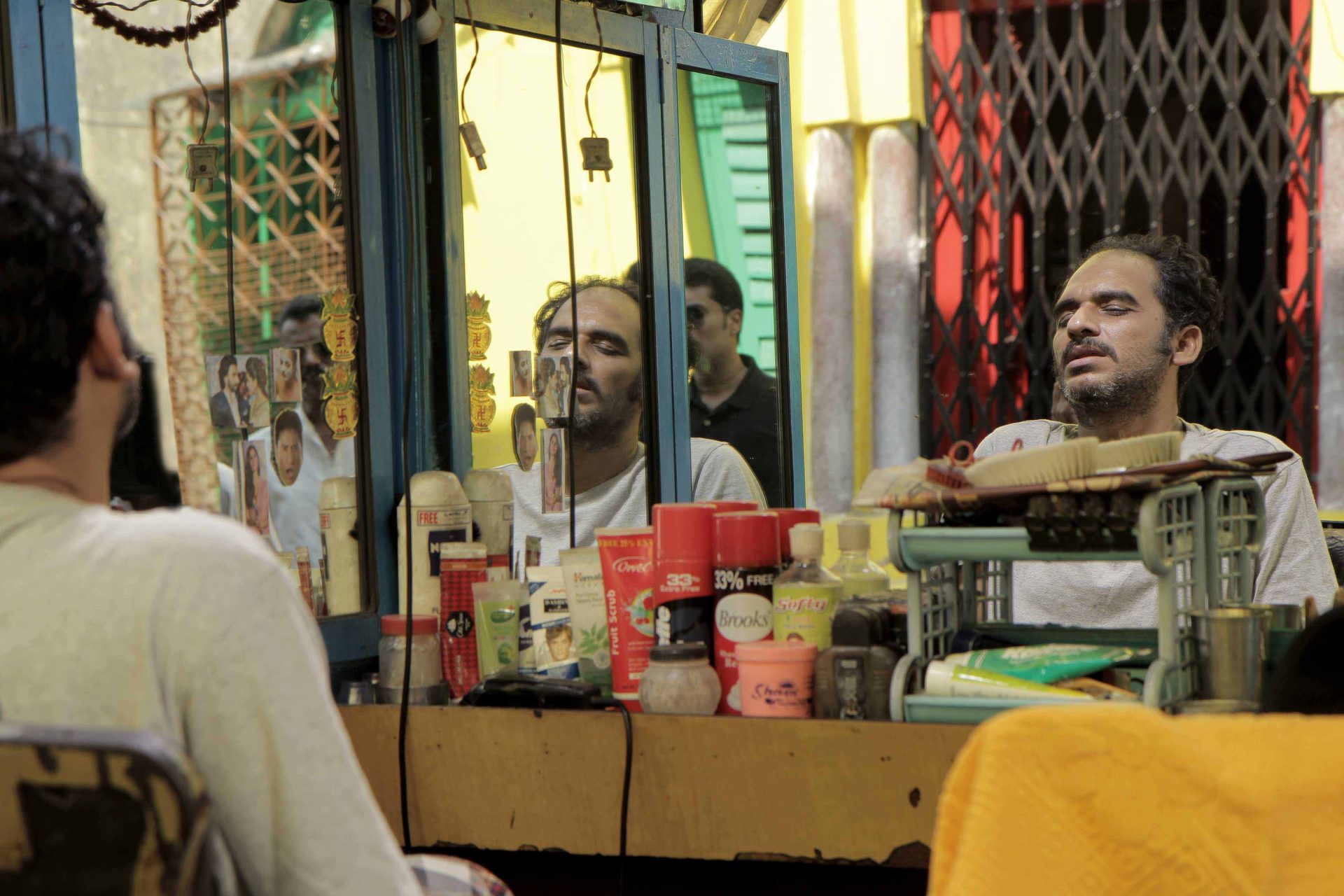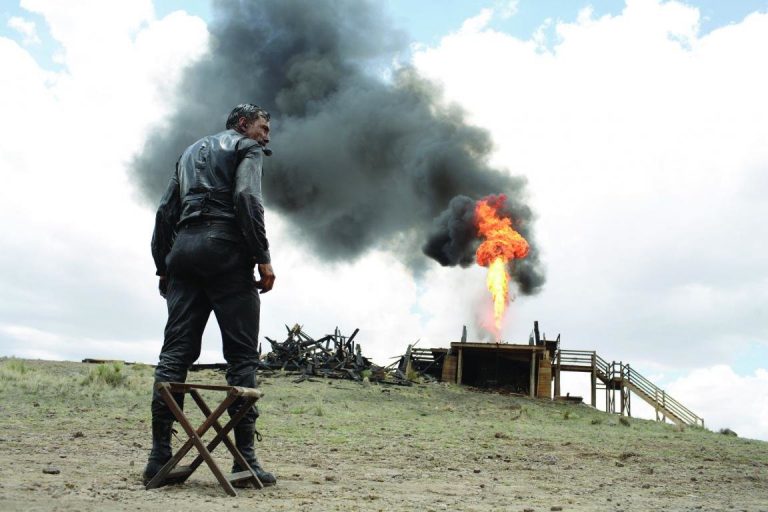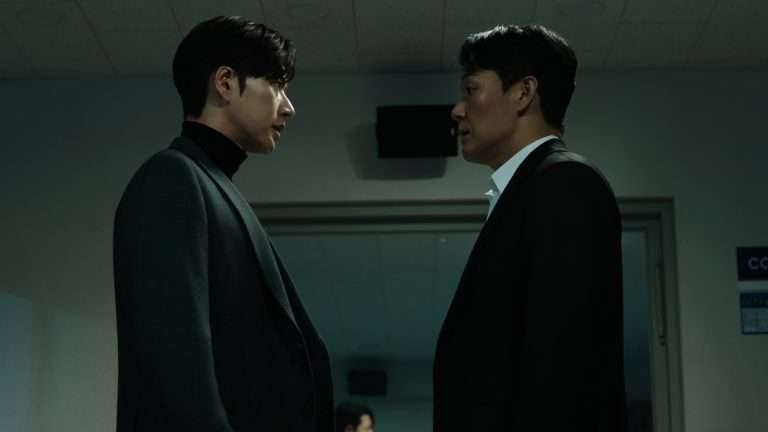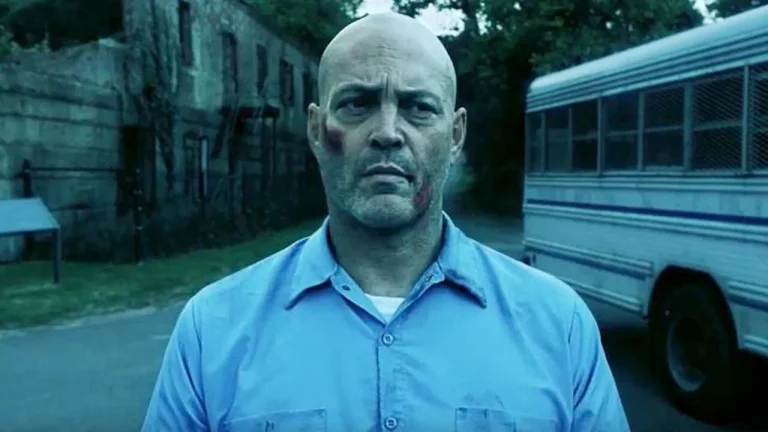Mayar Jonjal (2020) Movie Review: What is the price of living, especially that of the want for a life led with dignity and complete self-ownership? Can the two find an intermediate space where one can somehow get by, perhaps not grandly but with the grace of knowing one has worked the situation at hand to her or his very best? The compass to judge what’s the best one can do and is doing at a time is a shifting, subjective one. The characters in Indranil Roychowdhury’s latest film, Mayar Jonjal (Debris of Desire), are wrangling with their individual compasses, often jumping into decisions whose outcomes come off as severely miscalculated.
These are characters caught between the pull of the past’s sudden cruelty and the present’s heaving possibilities. The wounds are fresh, some latching onto them, some having seemingly moved far ahead only to slide back into despair. Despair and disrepair tail them. The sex worker Beuti (Chandrayee Ghosh) has sturdily accepted the reality that she’d been sold off into by her former husband from Bangladesh.
She’s an authority at her business who, however, still harbors traces of attachment to the man who duped her, her past in the form of the box of vermilion she guards passionately. Her present relationship with a man devoted to his love for her becomes a potential tinderbox for excavating critical questions arising from jealousy, suspicion, and fear of being manipulated.
In a striking piece of dialogue, she talks of a coital moment when she peers into her clients’ eyes and can forever read into the nature of their intentions, be it honest or dubious. That moment completely shatters any artifice as a facade, presenting a personality in its most unadorned essence. She’s wary and alert to deception and being swindled, which is why she trusts her instincts. Despite her affection for him, she keeps the affair on a tight leash, letting it play out only within certain parameters.
Beuti is also skilled in doling out niceties to get what she wants done. A tertiary tangent with one of her recurring customers, a fish seller (Bratya Basu), is turned into a stark contrast between a man who is in perpetual lament of how he feels he’s not been recognized and cared for and she who cannot afford to waste away in self-pity. She’s built her own well-furnished attached bathroom where she can have her privacy outside the room whose access is available to all the customers (Kaushik Das’s careful production design using spangly red curtains, color changing lights, greased mirrors, an almirah Beuti defends with her life ).
The tiled bathroom is as much a refuge as it is an aspirational symbol that helps her keep faith in the dreams she nurtures. Her lover, Satya ( Shohel Mondal), engaged in syndicate politics, is mired in joblessness and mounting debts, both grappling with his father’s suicide and being wrenched apart by his love for Beuti that intermittently sits uneasily with her occupation and the men she has to service.
Mondal is tasked with the role that wrestles with the most dilemma-ridden choices. A standout scene of Satya visiting Beuti on his birthday and getting her favorite paan exhibits Mondal’s affecting evocation of tension generated by his possessiveness deflated by Beuti’s vocation. This plot track stutters in execution as it winds up, heavyweight emotional reckonings dropped a little brusquely and too quickly for the impact to hit effectively. Yet, both Mondal and Ghosh deliver performances with deeply ingrained empathy and conundrum rattling within.
Ghosh combines Beuti’s toughened, brittle resignation to her present with unmistakable touches of weaponizing the hurt and the received betrayal to fuel herself through a routine with an unchanging position. She has a fascinating, commanding presence as she delineates Beuti’s ambivalent, tenuous relationship with her past, a wistfulness laced with stolid rejection.
Roychowdhury switches back and forth between the Beuti-Satya track and that of Shoma (Aupee Karim) and Chandan. We meet them as well several years into their marriage, the initial affection having worn off into visible abuse by Chandan and bitter conflict caused due to his alcoholic, idle and irresponsible ways after he gets laid off from his job at a plastic factory that folded up. In Ritwick Chakraborty’s searching gaze, there’s something akin to disconnection from his everyday surroundings. Yet, when he observes curiously a young couple with an expectant child, he conveys a subtle jab of the familiarity of the feelings of promise early into such a relationship, curdled with the realization of things not panning out as hoped for.
To support her son’s English medium education, Shoma takes up the job of a house help at a high-rise apartment, which creates friction in her marriage over Chandan’s bruised ego but only widens further to comment on the economic divides occasionally too bluntly.
However, Aupee Karim turns in such a humbly revelatory performance, capturing Shoma’s reticence and resolve with a balanced softness of sheer being. While Chakraborty’s act of observing has this raw hunger and a perplexed edge, almost being unable to fathom the course of things, Karim encapsulates hints of Shoma’s proactive ability to actualize the desires springing from all that she watches around her, lit by the wisdom of accepting even a fraction of being able to realize that desire with complete joy.
Karim is the beating heart of Mayar Jonjal. She expands the film’s world to allow and include our suppositions about Shoma. What she could and might be able to accomplish if only the peripheral lives were acknowledged and granted forgiveness from the vicious cycle that ingests all those who dare to fling high and above. Karim exquisitely modulates body language and voice to communicate an awareness of her social and class location, longing welling up in her bent-down face as she moves around her employer’s family.
Shoma and Chandan traverse limited geographies, both spatially and in the emotional ambit of their relationship, with flickers of growth and inevitable destruction. Both Chakraborty and Karim invest their performances with a wealth of little details and nuances, making them vividly engaging in a journey whose exceptionally etched-out arc is among the film’s biggest strengths. Watch out also for Karim’s scenes with Paran Bandopadhyay.
Roychowdhury operates in a mostly subdued strain of handling narrative needs. At the forefront are characters occupying marginal social status. Roychowdhury’s understanding of each is generous and kind to the situations under which they are compelled to exist, often by dint of bad fate or ill-conceived personal choices. What could be extremely volatile and ripe for high drama is dialed down, eschewing sentimentality and adopting a tone that isn’t afraid to mine the most uncomfortable emotions in demanding circumstances with the utterness and enormity of quiet internal churning.
Subhadeep Sengupta’s sound design draws on precisely such emotional states, pitching them against an aurally received background that stirs the most acute sense of unsettlement. The film hops from high rises to abandoned under-construction buildings to derelict communist party offices to the most desolate corners of the city.
Detritus linger around, a string of women on the move through the roads, a ragpicker and a priest serve as connective fiber that thinly links the two narratives based on Manik Bandopadhyay’s stories. Barring some questionable use of drone shots and awkward pans, cinematographer Indranil Mukherjee shoots the characters never as subjects contained within themselves but always within what surrounds them.
This is a film insistent on embracing the grime and daily squalor as a socio-political marker that separates people on difference. It becomes a sobering paean to women, diligent and toiling, failed by and whose efforts come undone by the men in their lives. Through his film, Roychowdhury hollows out urbanity to reveal rot in relationships, the trust binding them, what it takes for them to fray and the burden of inescapable ties. Mayar Jonjal throbs with well-rounded alertness to the fleeting possession and eventual dispossession of dignity in individuals in a city whose grip on them loosens with tragic suddenness.









